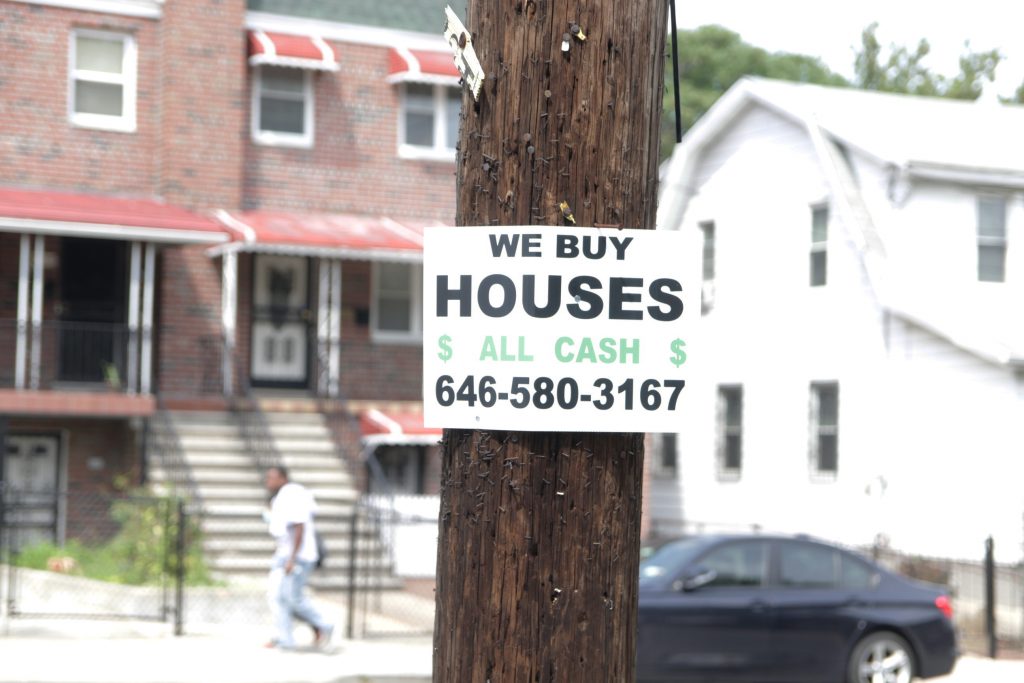
Photo by Síle Moloney
The State Assembly and State Senate have passed legislation (A1508) to allow seniors living in cooperative apartment buildings to apply for “reverse mortgages,” a type of loan currently available to homeowners that transfers built-up home equity into cash. Assemblyman Jeffrey Dinowitz (A.D. 81), who was one of the legislators to introduce the bill, announced the news on Friday, June 11, as the Legislature broke for the summer recess.
According to bankrate.com, a home equity loan is a lump-sum loan that’s secured by home equity. Quickloans.com defines equity as the difference between what a person owes on their mortgage and what their home is currently worth. If a person owes $150,000 on their mortgage, and their home is worth $200,000, they have $50,000 of home equity.
Bankrate.com representatives say home equity loans typically have repayment terms of up to 30 years and fixed interest rates, which currently average around 5 percent. However, if a person has good credit, their rate could be even lower.
According to bankrate.com, home equity loans can be used for nearly any purpose, but some of the best uses for them are paying down high-interest debt or financing major home renovations. Applicants typically need at least 15 percent to 20 percent home equity to qualify for a home equity loan.
Meanwhile, representatives from quickloans.com write that equity can increase in two ways. As a mortgage holder pays down their mortgage, their amount of home equity will rise. Their equity will also increase if the value of their home jumps. Their equity can fall, too, if their home’s value drops at a rate faster than the speed at which the mortgage holder is paying down their mortgage’s principal balance.
“Cooperative apartments are a very common way for New Yorkers to achieve the goals of homeownership, and seniors who live in these coops deserve to have access to the same resources as traditional homeowners so that they are not forced to sell their homes in order to get access to cash,” Dinowitz said.
According to the assemblyman, the legislation is supported by the National Association of Housing Cooperatives, as well as by the Council of New York Cooperatives and Condominiums, and comes amid nearly two decades of unsuccessful efforts lobbying the U.S. Department of Housing and Urban Development (HUD) to allow seniors in cooperative apartments access to this type of loan.
Dinowitz wrote that many of those living in cooperative apartment units are elderly and are of low to middle-income. Many also have fixed incomes derived solely from social security and pension checks. Although cooperative apartments are not considered to be “real property,” and thus are not traditionally eligible for such reverse mortgages, coop owners have invested a substantial amount of their lifetime earnings into home equity.
Oftentimes, such seniors face financial demands they cannot afford through with their recurring income sources and are forced to sell their homes to raise cash.

Photo courtesy of the Office of Assemblyman Jeffrey Dinowitz
This legislation previously passed in 2019, but was vetoed by New York Gov. Andrew Cuomo on the basis that “borrowers would still be exposed to unnecessary risk that could lead to foreclosure.” This was despite numerous consumer protections included in the legislation, such as restrictions on how solicitors can describe reverse mortgage offers, information about loan counseling and other helpful decision-making materials, guidelines on the foreclosure and/or sale process and more.
The Assembly passed the bill in 2021 with a vote of 148-1, and the State Senate passed the bill, carried by Bronx/Westchester State Sen. Alessandra Biaggi (S.D. 34), with a vote of 62-1.
“Our goal should be to help seniors age in place, in the homes that they have often lived in for decades, and this legislation does just that,” said Dinowitz. “I hope that Gov. Cuomo has reconsidered his opposition to this policy and I urge him to sign it into law once it is delivered to his desk.”




